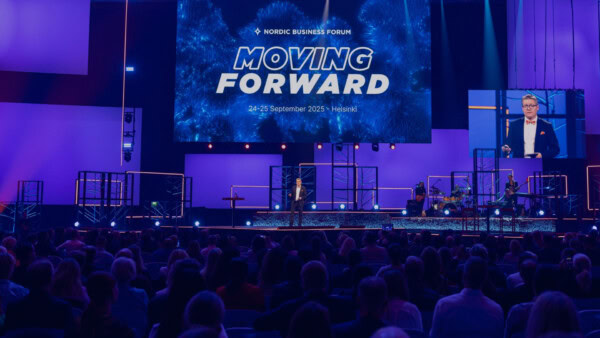14May2013
People say we can´t keep on growing: businesses shouldn´t grow, populations shouldn´t grow and economies shouldn´t grow. ”That´s unsustainable”, they say. That´s too pessimistic and simply wrong. Growth is the road to a better future and decline is not.
Growth makes life easier and more comfortable. If you take a look at the countries, which are in decline, you could see people on the streets also there. And those people are not happy. In Southern Europe, people are not having happy days but rather facing misery. When unemployment rate is rising and hopes for a brighter tomorrow are fading, growth would be warmly welcomed. Without growth, it´s very difficult for a country to pay its debts and provide quality public services. This means higher taxes, less services for the public and more unhappy people on the streets.
Not that long time ago even in Finland, people had to work really hard if they just wanted to survive. Economic growth has changed the picture quite dramatically. According to British economist Tim Harford, for most of history people have relied on income which is barely enough for food and rudimentary shelter. The halfway point between today´s income of the rich countries and those of ancient times was 1880, when income per head had increased tenfold and since then it has increased another 10 times. Not too bad.
The standard of living has risen surprisingly lot because of growth. Innovation is the source of growth and innovation has, for example, brought down the cost of illuminating a dark room. Harford tells that according to William Nordhaus´s experiments a modern light bulb produces the same amount of light as 34,000 candles from the early nineteenth century. He continues telling that in the early nineteenth century, earning the money to buy 34,000 candles would have taken an average worker all year. That’s called improvement. Life-saving drugs, modern transportation, televisions and laptops are all the wonders of innovation and growth.
For companies as well, the way to move forward is growth. Michael E. Raynor and Mumtaz Ahmed studied thousands of companies and found that there were actually only two elementary rules for corporate success. The other one was to prioritize increasing revenue (growth) over reducing costs. Luke Johnson, the head of a private equity firm Risk Capital Partners, says that the reason for all his really successful investments has been the fact that the underlying companies enjoyed high growth. According to Johnson, private equity makes money in four ways: buying low, selling high, companies generating cash and companies growing. However, Johnson concludes that the first three mechanisms are quite irrelevant in the long run, growth is what really matters. The case for business success is clear: push for growth.
What about all the problems, which come with growth? Harford answers: ”It remains to be seen whether… global warming, overfishing, soil erosion, or the end of oil will eventually outwit human technology and bring living standards crashing back down to subsistence levels. So far there is little sign of that. Most commodity prices, for example, fell throughout the twentieth century, suggesting that despite ever-higher demand, better technology was winning the day.”
Imagination and the creative process, which generates growth, make us special as human beings. When we create something out of nothing, we serve others, ourselves and we contribute to the growth. Then we don´t only divide the pie but we grow the pie. How to do that? At least, discouraging hard work, risk-taking and creativity is not the answer. It runs against the human nature. Contrary, we must feed and encourage entrepreneurial growth-mindset in every area of life, not only in the business circles. The way to move forward is not always clear. However, growth-mindset helps on the way.
Sources: Tim Harford: ”The Logic of Life” (2009), Michael E. Raynor & Mumtaz Ahmed: ”Three Rules for Making a Company Truly Great” (Harvard Business Review, 2013), Luke Johnson: ”There is only one way to be a success” (Financial Times, 2011)

 by:
by: 
